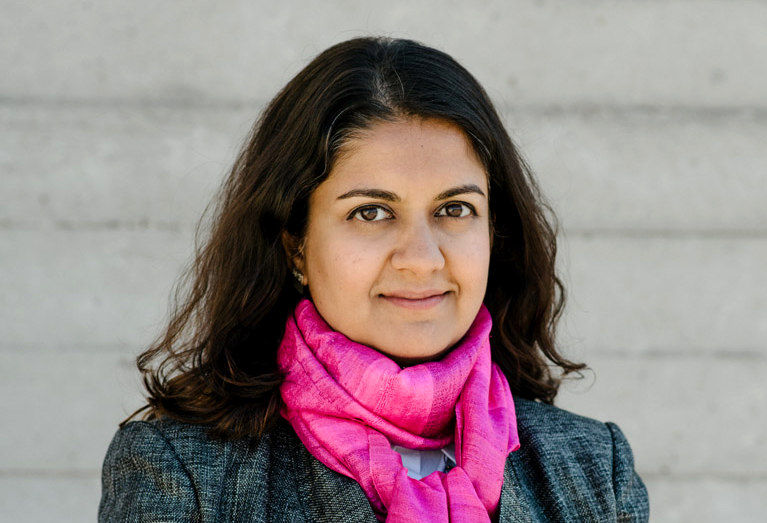
In this session we explore how we define infrastructure. We unpick what it means to use the term in this context. The questions we'll be asking include:
Infrastructure is something that exists over time and requires ongoing investment - how does this translate into enabling collective imagination work?
What needs to be in the soil before you begin to build? And what do we need to scaffold, what do we need to grow?
How does the infrastructure ensure that this work goes on to land with decision-makers?

Farzana (she/her) is the Executive Director and Co-founder Healing Justice Ldn. Her practice works on building community health, repair and self-transformation rooted in disability justice, survivor work and trauma-informed practice working with communities of colour and other marginalised and underrepresented groups. Farzana has over 10 years of background in Youth and Community work particularly focused on arts-based education projects both in the UK and internationally.
Farzana is the former creative and strategic director at Voices that Shake, bringing together young people, artists and campaigners to develop creative responses to social injustice. She ran this working at Platform London, a climate and social justice organisation working across arts, education, research and activism.
Farzana is a Fellow at the International Curatorial Forum. Her recent curatorial practice/art includes launching the Black Cultural Black Activism Map with the Stuart Hall Foundation and All Water Has Perfect Memory, writing on climate and gender justice and generational trauma & memory.

Anab is a designer, futurist, filmmaker and educator. As Co-founder and Director of Superflux, she hopes to realise a vision of the Studio as a new kind of design practice, responsive to the challenges and opportunities of the twenty-first century.
Over the last 15 years, Anab has gained international recognition for her work and commentary on design, innovation, emerging technologies and complex futures.
She is the recipient of the Award of Excellence ICSID, UNESCO Digital Arts Award, and Grand Prix Geneva Human Rights Festival, as well as awards from Apple and the UK Government’s Innovation Department. Her work has been exhibited at MoMA New York, V&A Museum, Science Gallery Dublin, National Museum of China, Vitra Design Museum, and Tate Modern.
Anab has delivered talks and keynotes at several conferences including TED, MIT Media Lab and MOMA’s first design summit ‘Knotty Objects’, PICNIC, NEXT, WCIT2010, LIFT, SIGGRAPH, Global Design Forum, EPIC, Design Engaged and FuturEverything. Recent talks include Why We Need to Imagine Different Futures, More Than-Human Centered Design, Design for the New Normal, Valley of the Meatpuppets and How Will We Live.
In addition, Anab was appointed Professor at the University of Applied Arts in Vienna in 2016, where she leads the Design Investigations (ID2) Program.

Debbie Chachra holds the title of Professor of Engineering at Olin College of Engineering, outside Boston, USA. She is currently working on a book about infrastructural systems, slated for publication by Riverhead Books in early 2023, and supported by a grant from the Alfred P. Sloan Foundation. She creates and communicates at the intersection of technology and society, including the Situated Systems research project and written pieces in outlets ranging from the journal Natureto the comic book Bitch Planet.
As one of the earliest faculty members at Olin, Dr. Chachra was involved in the creation and facilitation of the first project-oriented, design-focused, and student-centred undergraduate curriculum at the college.
Her research interests therefore include the student experience in undergraduate engineering education, for which she received an NSF CAREER award, as well as inclusion, diversity, equity, and anti-racism (IDEA) in science and technology, and she continues to publish, speak, and consult widely in these areas.
Prior to joining Olin, Dr. Chachra held a postdoctoral fellowship at the Massachusetts Institute of Technology. She earned her doctorate and master’s degree in materials science and engineering, together with an undergraduate degree in engineering physics, from the University of Toronto.